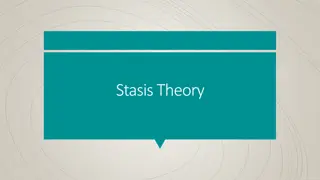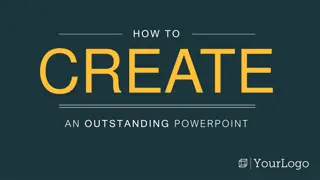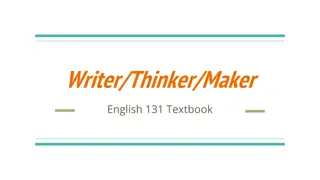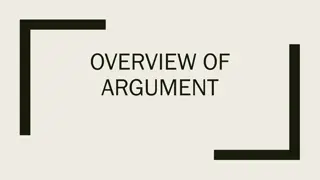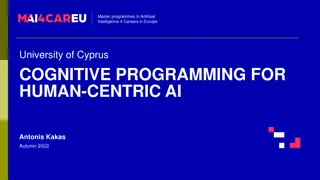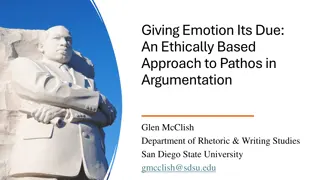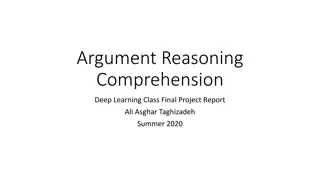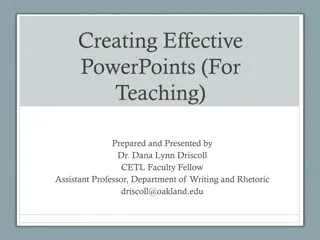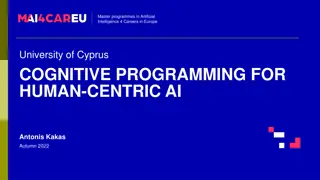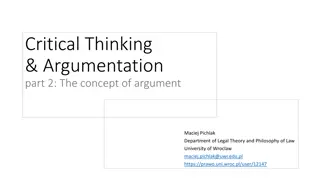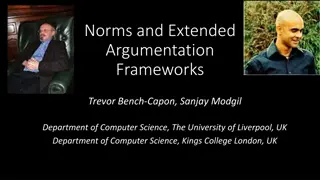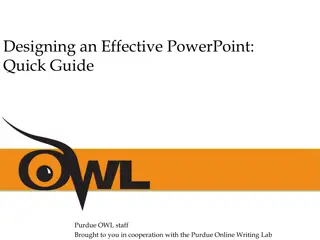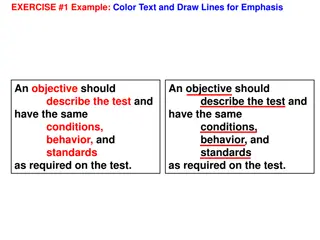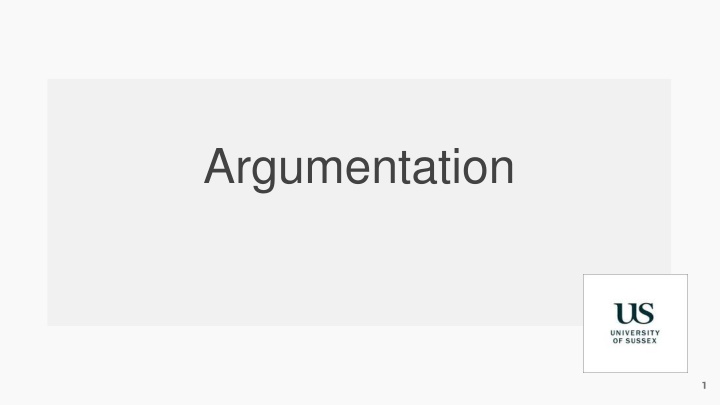
Developing Research Positions on Controversial Historical Topics
Explore the nuances of argumentation and position development in academic writing through research on sensitive historical subjects like eugenics and statues of controversial figures. Engage with thought-provoking questions on memory, representation, and societal values while considering the ethical implications of honoring problematic individuals. Gain insights into navigating complex topics with critical thinking and evidence-based arguments.
Download Presentation

Please find below an Image/Link to download the presentation.
The content on the website is provided AS IS for your information and personal use only. It may not be sold, licensed, or shared on other websites without obtaining consent from the author. If you encounter any issues during the download, it is possible that the publisher has removed the file from their server.
You are allowed to download the files provided on this website for personal or commercial use, subject to the condition that they are used lawfully. All files are the property of their respective owners.
The content on the website is provided AS IS for your information and personal use only. It may not be sold, licensed, or shared on other websites without obtaining consent from the author.
E N D
Presentation Transcript
Resource developed by Sue Robbins S.Robbins@sussex.ac.uk Some of the hyperlinks in this activity take you to the University of Sussex Skills Hub 2
Position/Argument In your written & spoken work you may be required to carry out research to develop arguments and provide supporting evidence for your position on a topic. This activity requires you to find out more about a topic and develop your own position on it. Developing a thesis/argument/position is central to the research process. 3
Worksheet Download the worksheet from LearnHigher (You will be redirected to a web browser). Edit and rename appropriately. Fill in the worksheet as you work through the following slides. 4
Content warning The following slides contain information about the topic of eugenics, and ask you to consider examples of groups of people who have been treated as unfit .
Research Questions (in green) 1. How should we remember historical figures who we know have done terrible things? It s a dilemma we face more often, as universities & public institutions critically examine their histories. Black Lives Matter protesters topple statue of Bristol slave trader Edward Colston. University College London renames buildings to cut links to promoters of eugenics. 6
Background Anti-racist protests were held in cities across the UK in 2020, in solidarity with US campaigners for the Black Lives Matter Global Network. In the same month BLM protesters toppled a statue of Bristol slave trader Edward Colston. 2. Do statues of slave owners have a place in our cities? How should we remember slavery? 7
Background to eugenics In 1865 Francis Galton tried to use his science of biostatistics to prove that Africans were intellectually inferior. This theory served to found eugenics. Superior, by Angela Saini, outlines how Galton's ideas have persisted into the 21st century. In 2020 University College London renamed buildings to cut links to promoters of eugenics. 8
Next research question 3. Do buildings named after eugenicists have a place in our universities? How should we remember scientific racism? 9
The topic of eugenics Eugenics is the study of methods of improving the quality of human populations by the application of genetic principles via selective breeding programmes: encouraging individuals deemed particularly fit to reproduce (positive eugenics), & discouraging or preventing the reproduction of the unfit (negative eugenics). 10
The topic of eugenics cont. Negative eugenics is a category that often includes people with mental or physical disabilities, people who score in the low ranges on different IQ tests, criminals and "deviants," and members of disfavored minority groups. Eugenics rejects the doctrine that all human beings are born equal and redefines moral worth purely in terms of genetic fitness. 11
Think of some examples Using your knowledge of the world, think of an example where these people have been treated as unfit : A female foetus A Rwandan Tutsi A Uighur A Jewish person A poor white person A person with Down syndrome A native American woman 12
Is it possible to argue for eugenics? 4. All of the examples you thought of depict a violation of basic human rights. How then can an argument be made for eugenics? 13
Considering alternative views 5. What do you think the 21st century terms new eugenics or liberal eugenics refer to? Supporters of human enhancement through genetic and other reproductive technologies claim that the new liberal eugenics, based on science and individual consent, differs from the old eugenics which was unscientific and coercive. Supporters claim it is a parent's moral obligation to produce the best children possible. 14
Alternative views cont. At this time, a defective gene that is identified in an unborn child cannot be repaired. To prevent the manifestation of the undesirable trait the unborn child is destroyed. The arguments in support of human enhancement are based on an ethic of consequence that could allow for nearly any means as long as the desired end is reached . 15
Research question 6. Some scientists and ethicists believe eugenics is a value-free science that got a bad name due to the practices in Nazi Germany. Would you find it easy/difficult to support this position? 16
What is your position on the topic? The old eugenics rejected the doctrine that all human beings are born equal and redefined moral worth purely in terms of genetic fitness . The new eugenics argues in support of human enhancement based on an ethic of consequence that could allow for nearly any means as long as the desired end is reached . 17
Research question 7. Based on what you have read, how far do you agree with each of these positions (previous slide)? Do you find either/both problematic? Why? 18
Read and evaluate You have been given 3 sources that relate to eugenics Go only to the slide for your discipline (see next slide) & click on the links to read the texts/watch the video. Read and complete the worksheet. Before you read/watch make sure you know why you are reading/watching (see next slide). 19
What is your purpose in reading? Read the texts for your discipline (see below) with the aim of deciding what your position is on the topic of eugenics. As you read consider how far you agree with the thesis, or the reasoning being put forward, & also whether an argument you could make against it fits better with your own views. (slide 23:Arts & Humanities; slide 24:Social Sciences; slide 25:Psychology; slide 26:Business). 20
Make a claim about eugenics After reading you will be asked to make a claim about the topic of eugenics. Your claim should be something you believe to be true and can develop a persuasive argument for, supported with evidence from your reading (see information about claims on the next slide). 21
Making a claim During your studies you may be asked to write a discursive essay. Your aim in writing this type of essay is to persuade your reader that your position on a topic is a valid one. This genre of essay makes a claim about a topic and defends this claim with evidence. Watch the animation about making a claim (2 mins) on the next slide. 22
Watch the video Making a Claim How to make a claim in argument writing.-- Created using PowToon -- Free sign up at http://www.powtoon.com/ . Make your own animated videos and animated presentations for free. PowToon is a free tool that allows you to develop cool animated clips and animated presentations for your website, office meeting, sales pitch, nonprofit fundraiser, product launch, video resume, or anything else you could use an animated explainer video. PowToon's animation templates help you create animated presentations and animated explainer videos from scratch. Anyone can produce awesome animations quickly with PowToon, without the cost or hassle other professional animation services require. 23
Arts & Humanities - White trash (socio-economic group) The Courthouse Ring: Atticus Finch and the limits of Southern liberalism by Malcolm Gladwell. Gladwell touches on how the belief in eugenics, wherein poor white families could be labeled as inferior stock , influenced how Harper Lee constructed Atticus Finch s defense in the trial in her novel To Kill a Mockingbird. The film Tiger King is popular because we love to laugh at white trash here s why that s dangerous by Hannah Yelin. Yelin cautions that we should beware comforting entertainment predicated on us and them logic which imagines them to be disposable and not us , when our government in a time of health crisis [covid19] is doing exactly the same to us . The deep roots of "white trash" in America: "Not only are we not a post-racial society, we are certainly not a post-class society" by Nancy Isenberg. Salon talks to Nancy Isenberg about America's history of race, class, eugenics and the myth of social mobility. 24
Social Sciences - Genocide (minority group) On Indigenous Peoples Day, recalling forced sterilizations of Native American women By Ellen J. Kennedy. In 1977 the United Nations released a report prepared in conjunction with the Native American Solidarity Committee. It outlined the genocidal practices of the U.S. government, including the sterilization of Native American women. The report concluded that 24 percent of Native women had been sterilized and that 19 percent of the women were of child- bearing age. Q&A: Genocide in Rwanda by Peter Walker. Walker offers background to the 1994 massacre in which an estimated 800,000 people were killed Uighurs are among those facing involuntary contraception or threats over birth quotas. In China, the Muslim ethnic minority group are among those facing involuntary contraception and are being threatened with internment for refusing to abort pregnancies that exceed birth quotas. 25
Psychology - Measuring IQ (intellectually inferior groups) The long shadow of the eugenics movement by Philip Yanos. Yanos points out that Psychology played a special role in the legitimization of eugenic ideas in both the United States and elsewhere, largely because of the development of psychological testing approaches designed to measure intelligence. IQ tests have a dark, controversial history but they're finally being used for good by Daphne Martschenko. Martshenko reminds us that the relevance, usefulness, and legitimacy of the IQ test is still hotly debated among educators, social scientists, and hard scientists and that to understand why, it's important to understand the history underpinning the birth, development, and expansion of the IQ test a history that includes the use of IQ tests to further marginalize ethnic minorities and poor communities. The dark history of IQ tests - TEDEd video by Stefan C. Dombrowski 26
Business - Consumer Eugenics (designing the best baby) Editing the human genome brings us one step closer to consumer eugenics by David King. King argues that hijacked by the free market, human gene editing will lead to greater social inequality by heading where the money is: designer babies Designer Babies: When Baby Genes Are for Sale, the Rich Will Pay by Alex Salkever & Vivek Wadhwa. The authors argue that while genetic manipulation to save lives makes perfect sense, the process shouldn t be used to merely improve the chances of success of those already born with inherited socio-economic advantages. Designer babies should only be available if they are available to everyone. Human gene editing 27
See also... Social Darwinism Scientific racism Designer babies Forced sterilisation of native American women Forced sterilisation of the feebleminded & insane White trash Nazi eugenics Race & intelligence 28
Acknowledgements These slides were written by Sue Robbins, Senior Lecturer in English Language, and are free to reuse, with citation. Robbins, S. (2022) Argumentation [PowerPoint presentation]. University of Sussex. Available at:





